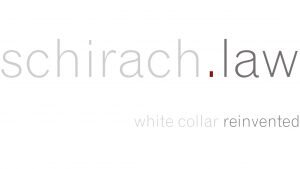Best Sanctions & Export Controls Lawyers in Munich
Share your needs with us, get contacted by law firms.
Free. Takes 2 min.
List of the best lawyers in Munich, Germany
About Sanctions & Export Controls Law in Munich, Germany
Sanctions and export controls in Munich, Germany, refer to the legal frameworks governing the transfer, shipment, and sharing of goods, technology, and services that may be subject to trade restrictions for reasons of national security, foreign policy, or international obligations. Munich, as a key business and technological hub in Germany, falls under both German national laws and regulations set by the European Union. These rules are designed to prevent the proliferation of weapons, enforce international peace and security, and protect Germany's interests abroad. Failure to comply with these laws can result in serious civil and criminal penalties, supply chain interruptions, and reputational damage for individuals and companies based in or operating through Munich.
Why You May Need a Lawyer
Individuals and businesses might need legal assistance with sanctions and export controls for various reasons. Common situations include:
- Receiving notification of a regulatory investigation or audit regarding export activities
- Facing allegations or charges related to the violation of export or sanctions laws
- Needing guidance on whether specific goods or technologies require export licenses
- Understanding embargoes or sanctions imposed by the EU, Germany, or international organizations
- Dealing with blocked payments or frozen assets due to suspected sanctions breaches
- Drafting or reviewing contracts that may be affected by export restrictions
- Implementing compliance programs and employee training to avoid inadvertent breaches
- Expanding international operations in regions subject to restrictive measures
In such cases, an experienced lawyer can help you navigate the complex regulatory landscape, mitigate risks, and represent your interests during investigations or proceedings.
Local Laws Overview
In Munich, the key laws and regulations governing sanctions and export controls include Germany's Foreign Trade and Payments Act (AWG), the Foreign Trade and Payments Ordinance (AWV), and the consolidated EU dual-use regulations. These laws collectively:
- Regulate the export, import, and transit of goods, software, and technologies considered sensitive (for example, dual-use items that can be used for both civilian and military purposes)
- Implement arms embargoes, asset freezes, and travel bans against countries, entities, and individuals targeted by EU or UN sanctions
- Require companies and individuals to screen business partners and transactions for any potential sanctions exposure
- Mandate export licensing for specific goods, technologies, and destinations
- Include strict reporting and record-keeping obligations for compliance purposes
The Federal Office for Economic Affairs and Export Control (BAFA) is the primary authority responsible for issuing export licenses and overseeing compliance. Munich-based entities must ensure strict adherence to these requirements or risk significant penalties.
Frequently Asked Questions
What are sanctions and export controls?
Sanctions are restrictive measures imposed by governments or international bodies to influence behavior or uphold international law, such as bans on trade or financial activity with certain countries or organizations. Export controls are regulations on the transfer of specific goods, software, or technology to foreign countries, particularly those with security or weapons proliferation concerns.
Who enforces sanctions and export controls in Munich?
Sanctions and export controls are mainly enforced by the Federal Office for Economic Affairs and Export Control (BAFA) with support from German customs authorities. Depending on the case, other agencies may also be involved.
Do I need an export license for every shipment?
No, not every shipment requires a license. Export licenses are needed for controlled goods, technologies, or shipments to embargoed countries or individuals. Legal guidance can help determine if your goods require licensing.
What are the penalties for violating sanctions or export controls?
Penalties can include substantial fines, criminal charges, loss of export privileges, and reputational harm. Severe violations can even lead to imprisonment.
How do I check if a product is subject to export controls?
You must classify your product according to the German export list and the EU Dual-Use Regulation. A lawyer or compliance expert can assist with proper classification and determining license requirements.
Are software and technology transfers also regulated?
Yes, sharing controlled technology or software, even electronically or during technical discussions with foreign nationals, may require authorization. This includes cloud services and other digital transfers.
Do EU sanctions automatically apply to companies in Munich?
Yes, since Germany is an EU member state, all EU sanctions are directly applicable within Munich. Businesses must ensure compliance with both EU and German measures.
What documentation should I keep for compliance?
You should maintain detailed records of all export transactions, licenses, communications, and partner screening results for at least five years. Proper documentation is essential in the event of an audit or investigation.
Can I trade with companies in sanctioned countries if they are not listed individually?
No, trading with any entity or person in a sanctioned country may be prohibited even if they are not specifically named. Due diligence is crucial to avoid indirect breaches.
What steps can I take to ensure ongoing compliance?
Implement an internal compliance program, regularly train staff, screen customers and transactions, stay updated on regulations, and seek legal advice whenever unsure about specific situations.
Additional Resources
Several organizations and resources provide information and support regarding sanctions and export controls in Munich, Germany, including:
- Federal Office for Economic Affairs and Export Control (BAFA) - the principal licensing and enforcement authority
- German Customs (Zoll) - for guidance on import, export, and transit procedures
- Federal Foreign Office (Auswärtiges Amt) - for updates on foreign policy and current sanctions lists
- European Commission - for EU-wide rules and consolidated lists of sanctions targets
- Chambers of Industry and Commerce in Munich - for export compliance seminars and business resources
- Specialized law firms and compliance consultants in Munich
Next Steps
If you require legal assistance with sanctions or export controls in Munich, consider the following steps:
- Gather all relevant information about your goods, technologies, or transactions
- Assess your current compliance measures and identify any gaps
- Contact a lawyer specializing in sanctions and export controls law, preferably with experience in Munich or Germany
- Prepare questions in advance regarding your specific circumstances
- Work with your lawyer to review or establish internal compliance programs
- Remain proactive about monitoring regulatory updates and adapting your processes as needed
Legal issues in this area can be complex and the consequences for getting it wrong are serious. Professional legal advice tailored to your situation is invaluable for avoiding risks and protecting your interests in international trade.
Lawzana helps you find the best lawyers and law firms in Munich through a curated and pre-screened list of qualified legal professionals. Our platform offers rankings and detailed profiles of attorneys and law firms, allowing you to compare based on practice areas, including Sanctions & Export Controls, experience, and client feedback.
Each profile includes a description of the firm's areas of practice, client reviews, team members and partners, year of establishment, spoken languages, office locations, contact information, social media presence, and any published articles or resources. Most firms on our platform speak English and are experienced in both local and international legal matters.
Get a quote from top-rated law firms in Munich, Germany — quickly, securely, and without unnecessary hassle.
Disclaimer:
The information provided on this page is for general informational purposes only and does not constitute legal advice. While we strive to ensure the accuracy and relevance of the content, legal information may change over time, and interpretations of the law can vary. You should always consult with a qualified legal professional for advice specific to your situation.
We disclaim all liability for actions taken or not taken based on the content of this page. If you believe any information is incorrect or outdated, please contact us, and we will review and update it where appropriate.











